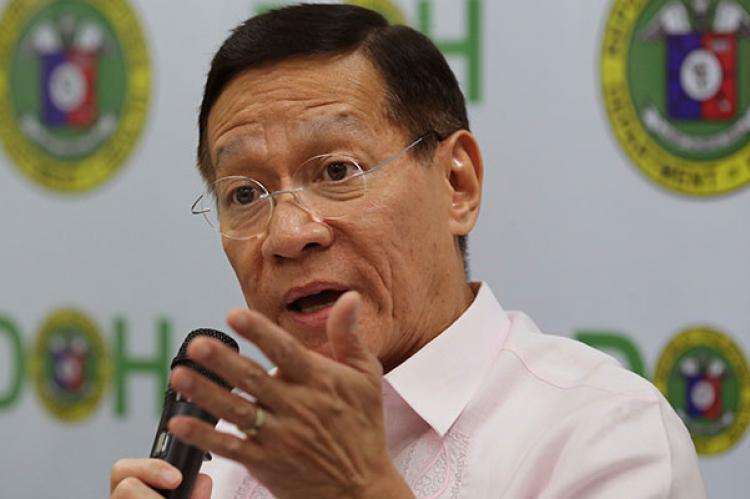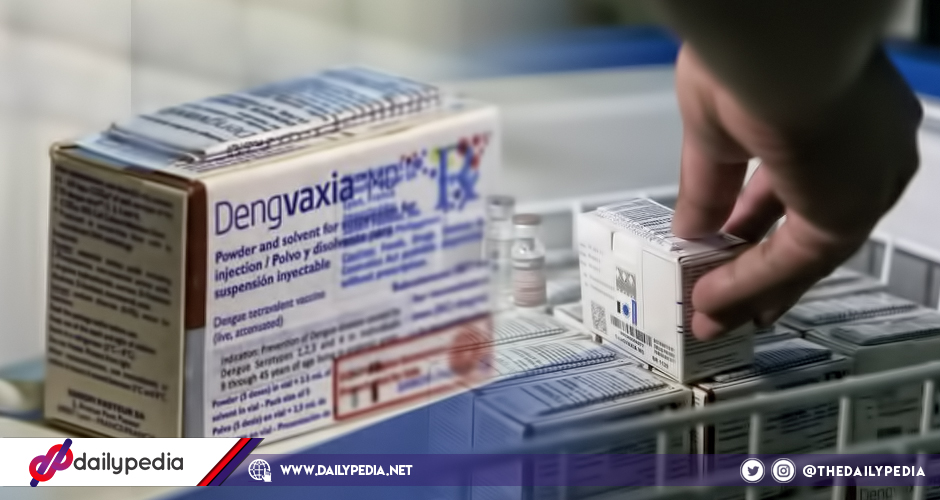- Department of Health releases results of the investigation of the Philippine General Hospital Investigative Task Force
- The DOH recognizes that these issues continue to cause fear and confusion especially to our parents whose children were given Dengvaxia.
Since December 2017, under the new DOH administration, we have started to address the issues surrounding Dengvaxia – a new vaccine which was given to more than 830,000 children from March 2016 to October 2017.
The DOH recognizes that these issues continue to cause fear and confusion especially to our parents whose children were given Dengvaxia. We therefore wish to clarify this matter through a transparent and objective report based on scientific evidence which is now guiding the DOH in finding solutions on the matter.
Today, we report the results of the investigation of the initial 14 deaths of children given Dengvaxia. In pursuit of seeking the truth among other actions made by the Department, we immediately coordinated with an independent group of experts that would review the first cases of mortalities among Dengvaxia vaccines recipients. The Philippine General Hospital (PGH) is a government agency separate from DOH. Being part of the UP, it has a mandate to provide expert opinion on public issues. In response to our request, the PGH created the DITF to evaluate the 14 initially reported deaths.

Based on the PGH DITF report using the WHO Algorithm for Causality Assessment of Adverse Events Following Immunization (AEFI), a systematic, scientifically sound, and universally accepted proves of assessing causality of events following any vaccination, it was found that:
Three (3) out of the 14 cases were found to be coincidental because there was inconsistent causal association to immunization
Two (2) cases were unclassifiable due to inadequate information available
In six (6) cases mortalities were observed in vaccine recipients with unscreened comorbidities and there is an established temporal relationship because the children died within 30 days after receiving the vaccine. Further testing of tissue samples is needed to complete the investigation. The importance of clinic-pathologic correlation is also of utmost importance in these cases.
In three (3) cases, causal association was observed. The children died due to dengue despite being vaccinated with Dengvaxia – two of which may be on account of vaccine failure. Therefore, further testing of tissue samples and antibodies is also necessary in these cases to complete the investigation.
These results strengthen our decision to suspend the Dengue Immunization Program as Dengvaxia is not fit for a mass immunization program that does not screen for prior dengue infection and comorbidities of children before the administration of the vaccine.
In this light, the DOH will now hand over the PGH DITF report and the National Expert Panel reports to the Department of Justice so that they may use them in the fulfillment of their mandate to investigate and prosecute those who are possibly accountable.

We will do everything possible in our power to monitor the children and provide them immediate medical care if needed. Likewise, the DOH will strengthen its systems and processes in the implementation of the National Immunization Program in order to address and prevent observed deficiencies in the roll-out of new vaccines, like Dengvaxia.
The DOH acknowledges that there are still a lot of uncertainties on the Dengvaxia as it is a new vaccine but we are committed to continue the ongoing scientific investigation on other reported deaths and hospitalizations and future evidence that will emerge from implementation.
The Department will continue to strengthen its Dengue Prevention and Control Program and collaborate with other agencies of government such as the Department of Education, and Local Government Units so that together we can continue to safeguard the welfare of the vaccinated children. We have also partnered with the Philippine Red Cross to provide immediate transport and referral of dengue patients to health facilities and ensure the adequacy of blood supply.
We reiterate that the cost of hospitalizations will be shouldered by PhilHealth through its existing case rates, and DOH through its Medical Assistance Program. Dengue prevention kits will also be distributed to all students and other vaccinated children to enable them to adopt self-protection measures and prevent them from contracting the disease.
The DOH hotlines are open 24/7 in both our Central Office and Regional Offices to promptly respond to immediate concerns and needs of the parents.
We call on our teachers and parents to continue to work with the department with our goal of safeguarding the health of our children and to prevent them from contracting dengue or other illnesses. Together, let us continue to monitor them.
To the parents, we hope you consider the DOH as your partner in looking after the welfare of your children. There is no full protection against dengue that is why we encourage everyone to implement the 4S Kontra Dengue strategy.
To the medical and scientific community and other concerned citizens, we asked for your help in clarifying misconceptions and providing only evidence-based information on dengue.
Dengue is a disease that part of the daily lives of Filipinos because of the existence of the Aedes aegypti mosquitoes that carry the dengue virus. However, there are measures that we can do as individuals and communities to prevent dengue infections. Every year, there are about 200,00 dengue cases registered in DOH. Although the case fatality rate remains below 1%, we acknowledge the fear brought by this disease. Let us work together as one nation to ensure the health and safety of our children against dengue and other illnesses, whether vaccinated with Dengvaxia or not.



